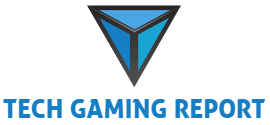The mobile operator SIA “Latvijas mobilais telefons” (LMT) in cooperation with the wireless equipment manufacturer “MikroTīkls”, which works under the brand “MikroTik”, and the Institute of Mathematics and Informatics of the University of Latvia (LU MII) has performed the first tests. , making data encrypted with quantum technologies, said Valdis Jalinskis, head of public relations.
He said that in testing, LU WMD scientists had transmitted information encrypted with quantum technologies on the LMT network, thus taking an important step towards reducing future cybersecurity risks.
As Jalinski explained, quantum technology is a high-tech class that develops radical innovations rooted in quantum physics: data processing by quantum computers, secure communications facilitated by the quantum Internet and cryptography, and the production of sensors and measurement devices. high sensitivity, or quantum metrology.
According to him, Latvia is developing quantum software and algorithms, as well as hardware (nanoelectronic and photonic sensors and quantum devices), as well as quantum Internet, secure quantum fiber and air communications, optical satellite communications.
LMT President Juris Binde acknowledged that the interest of various industries in the application of quantum computing and more secure communications in the world is very high, especially in the fields of finance, medicine and defense.
“The European Union initiative is actively developing infrastructure, including quantum computing and the quantum Internet. The development of mobile communications using quantum technologies has a number of benefits, even in areas with the greatest potential for developing knowledge and technology intensive and Exportables Products and services. That is, quantum technologies open up new opportunities for secure digital communications, significantly reducing potential cybersecurity risks in the future, “said Binde.
Meanwhile, John Tally, chairman of the MikroTik board, emphasized that new technology opportunities are not just numbers on paper, they are new products, services and opportunities in all areas: business, science, education and medicine. “The more effort and resources we invest in technological development today, the more technologically advanced we will be in the future. This will allow humanity to better prepare for yet unknown and unpredictable challenges,” Thallium said.
Jalinski also stressed that the use of quantum encryption technology equipment in data transmission will make the information flow much more secure. Since 2019, LU MII has been using the “Clavis3” equipment from the Swiss company “ID Quantique QKD” for the distribution of quantum keys to test the possibilities.
During the first test conducted jointly by LMT and LU MII, data encrypted with quantum technologies was transferred over the LMT network, with quantum keys synchronizing at a rate of approximately 2000 bits per second. Currently, both quantum technology devices are located in LU MII, but one of them is planned to be transferred to LMT soon for the next trial period.
In turn, developing research on the use of quantum technologies, “MikroTik” is expected to develop cryptographic devices – chips suitable for quantum encryption – in the framework of joint cooperation with LMT and LU MII.
“The benefits of quantum physics can be reaped today without waiting for quantum computers and the quantum Internet based on quantum computers, that is, the use of quantum technologies for the secure exchange of data encryption keys and communications in general. A An important step is to integrate the data encryption of quantum key exchange technology with the current exchange of classically encrypted data on the Internet, “said Ināra Opmane, director of LU MII.
He explained that quantum key distribution (QKD) technology transmits a secret key to the other party with individual photons in such a way that the laws of quantum physics guarantee the detection of eavesdropping. “If the QKD channel is listened to, the receiver detects it as a key transmission error and does not trust them. Therefore, QKD guarantees that the secret key is only available to both participants and no one else has seen it,” he said. Opmane.
LMT was registered in January 1992 and its share capital is 817,000 euros. Sonera Holding and Telia Company own 24.5% of the company’s capital, Tet and the Latvian State Radio and Television Center each own 23%, and the State owns the Public Asset Manager SIA Possessor. In 2020, the LMT Group had a turnover of 227,506 million euros, 0.7% less than a year earlier, but the group’s profit decreased by 6% and amounted to 27,226 million euros.

Introvert. Beer guru. Communicator. Travel fanatic. Web advocate. Certified alcohol geek. Tv buff. Subtly charming internet aficionado.
